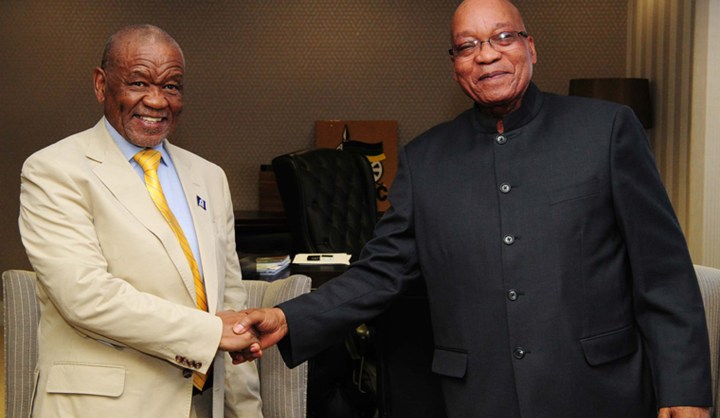Africa
Lesotho: No coup on our watch, says South Africa

The South African government has issued a very clear and blunt warning that it would not tolerate a military coup in troubled Lesotho. By PETER FABRICIUS.
Minister of International Relations and Co-operation Maite Nkoana-Mashabane has made it emphatically clear that a coup in Lesotho will n0t be tolerated.
Maite Nkoana-Mashabane had been asked at a media briefing what her government would do if, as some fear, the Lesotho Defence Force did not accept the new government led by Tom Thabane and his All Basotho Convention (ABC).
“The coup thing is clear… We will not allow it to happen. Not in our backyard,” Minister of International Relations and Co-operation Maite Nkoana-Mashabane said.
“That’s not a threat. That’s just the way it is.”
The ABC won the largest number of seats, 48, in the June 3 legislative elections, but this was not an absolute majority in the 120-seat Parliament. So Thabane has formed a fragile coalition with three smaller parties, giving him a slender 3-seat majority.
His new government has not yet been sworn in, though.
Though defeated Prime Minister Pakalitha Mosisili announced his resignation on Friday, his controversial deputy Mothetjoa Metsing caused some disquiet the same day by announcing that “there is no need for the removal of the existing government in office as we all agree that in order for Lesotho to be stable there is a need for a government of national unity”.
This suggested Metsing might not leave office quietly.
He and Mosisili have very close relations with the LDF. But Thabane does not. In August 2014, when Thabane was prime minister, the then LDF chief Tlali Kamoli launched a coup – which was eventually aborted – against his government, forcing him to flee to South Africa.
After regional mediation, Mosisili won the following elections in February 2015 and Kamoli then launched a witch hunt against Thabane supporters, including in the military, killing Thabane’s military chief Maaparankoe Mahao and killing, jailing or allegedly torturing several other soldiers.
Though Mosisili removed Kamoli from his post as military chief last December, under international pressure, neither he nor any other officers have been prosecuted for Mahao’s death or any other alleged crimes. So some Lesotho observers fear the LDF might try to pre-empt such action by preventing Thabane from taking power.
But Nkoana-Mashabane, speaking at ANC headquarters Luthuli House, at a briefing by the ANC’s international relations sub-committee on the party’s international relations policy document, insisted Pretoria and the region would not allow that to happen.
She pointed out that at a Southern African Development Community (SADC) summit two years ago, “we have made it clear that not in any corner of our sub-region SADC, not in any corner of our continent, will we ever tolerate a military coup”.
That had been made very clear to everyone, including Lesotho. She added that Lesotho had given an undertaking that it would address the necessary reforms of the problems which the Basotho had said were bedevilling government in that country, focusing on the role of the police and the army.
SADC’s Phumaphi Commission, established to investigate Mahao’s death and related issues, endorsed constitutional, political and security sector reforms which SADC had recommended to remedy the country’s chronic instability. The main problem has been the frequent meddling of the military in politics.
Environment Minister Edna Molewa, who chairs the ANC’s international relations sub-committee, said on Sunday that Pretoria had not been officially informed of anything which might prevent the establishment of a new government. But her government would continue to monitor the situation.
On 7 June, Deputy President Cyril Ramaphosa, who is SADC’s facilitator of the peace process that began in Lesotho after the August 30, 2014 attempted coup, announced that he would visit Lesotho soon after the new government had been formed.
His aim would be to convene a multi-stakeholder dialogue forum “to build consensus for the implementation of SADC decisions”.
“These will include the implementation of the constitutional and security sector reforms as well as recommendations of the Phumaphi Commission of Inquiry.”
SADC had urged Mosisili to convene this multi-stakeholder forum but he had not done so. DM
Photo: President Jacob Zuma meets the Prime Minister of the Kingdom of Lesotho Tom Thabane in Johannesburg 13 May 2013. (Photo: GCIS)

















 Become an Insider
Become an Insider